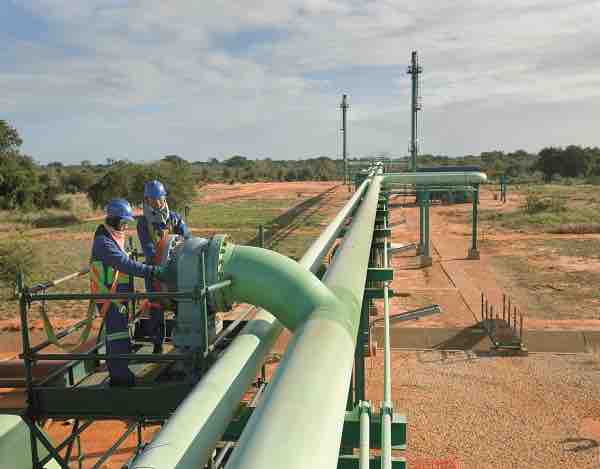May 2016, Vol. 243, No. 5
Web Exclusive
Mozambique’s LNG Dreams Falling Apart

Mozambique is heading towards a major default on outstanding loans related to offshore natural gas infrastructure, symbolizing the deflating hopes for a major source of new natural gas production from East Africa.
The state-owned Mozambique Asset Management is set to default on $535 million in loans, which it took out to construct shipyards to service natural gas drilling off of its coast. Because of the grace period included in the loan terms, Mozambique is not yet technically in default, but it could default soon if it fails to convince creditors to make a deal. Mozambique had tried to renegotiate with creditors, led by Russia’s VTB Bank, but has been unable gain some leniency.
Mozambique’s debt problems have snowballed. The government made a surprise announcement in April that it had $1.35 billion in outstanding debt that it could not pay. Fitch Ratings quickly downgraded the country’s sovereign credit rating to CCC, a rating that denotes a very real risk of default. Its debt pile owed to foreign creditors, according to Reuters, now stands at $9.86 billion, or 80 percent of GDP. Much of the debt is related to a buildup in the country’s security services, including patrol vessels to protect its fishing fleet. But, by all accounts, financial mismanagement has put the country up against a wall. The IMF, taken aback by the secret debt, cut off assistance to the East African country in April, which will likely only make the problem worse. The World Bank also discontinued its assistance.
The ballooning debt is connected to the hype surrounding Mozambique’s large natural gas reserves that sit just offshore. Estimates vary, but there could be 100 to 180 trillion cubic feet of natural gas, which puts it just behind the continent’s two largest holders of natural gas reserves, Nigeria and Algeria. Those massive reserves attracted significant attention from some of the largest oil and gas companies in the world, including ExxonMobil, Royal Dutch Shell, Eni, Statoil, Anadarko Petroleum and Russia’s Rosneft.
The idea was relatively simple. The companies would drill for gas and pipe it to the shore. Some of the gas could be used domestically, but much of it would be liquefied and exported abroad from yet-to-be constructed LNG export terminals. The IMF predicted that $100 billion in investment could pour into Mozambique over the ensuing years. In theory, Mozambique could become the third largest LNG exporter by the end of the decade, creating huge opportunity in one of the world’s poorest countries.
Anadarko Petroleum, for example, is weighing a final investment decision on a $15 billion LNG export terminal, but the U.S. company is slashing spending because of low oil prices. Mozambique has been concerned that there is a limited window of opportunity given the very large volumes of LNG export capacity coming online elsewhere around the world. “Unless we speed the process, we could lose the opportunity,” Omar Mitha, chairman of state-owned oil company ENH, told Bloomberg in February. ENH is partnering with Anadarko.
Similarly, Eni is weighing an FID on its floating LNG export terminal, and could make a decision this year. Eni’s project is thought to be at the forefront of several on the drawing board. But Eni is also looking to sell off some of its holdings in the country to raise cash and reduce risk. The Italian oil giant is reportedly sitting on 85 Tcf of gas, which is equivalent to the entire U.S. residential demand for natural gas over two decades.
Mozambique’s northern neighbor, Tanzania, is also hoping to develop large-scale natural gas production in order to export LNG, but it too has hit roadblocks.
The problem is that development has taken longer than expected. And crucially, global LNG markets are no longer desperate for new sources of supply. Spot prices in East Asia, which is traditionally the most attractive market, are down by around 75 percent from a peak two years ago. That means that the oil majors that had been considering large-scale gas drilling off of Mozambique’s coast are no longer scrambling to move forward. Plus, many of them are cutting costs and retrenching in the face of low prices and rising debt.
Broader financial mismanagement has put Mozambique in a bind, and the problems that have mushroomed since the original natural gas discoveries several years ago, some say, are signs of a resource curse. The hundreds of millions of dollars spent on ports in Mozambique may not see a return. Reuters says that other state-owned companies spent large sums on “high-speed naval interceptors, radar stations, offshore patrol vessels and aircraft.” Much of that equipment is sitting idle.
By Nick Cunningham of Oilprice.com





Comments